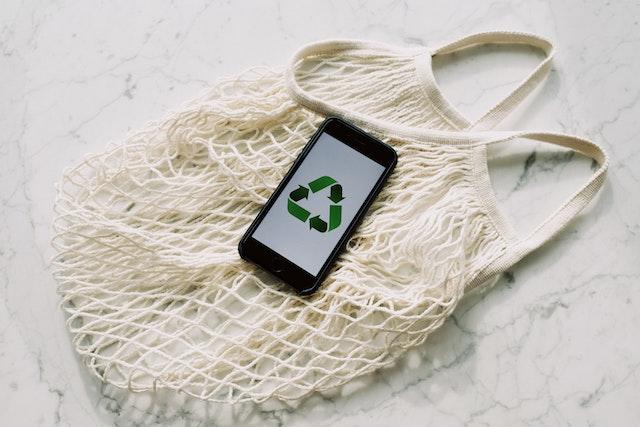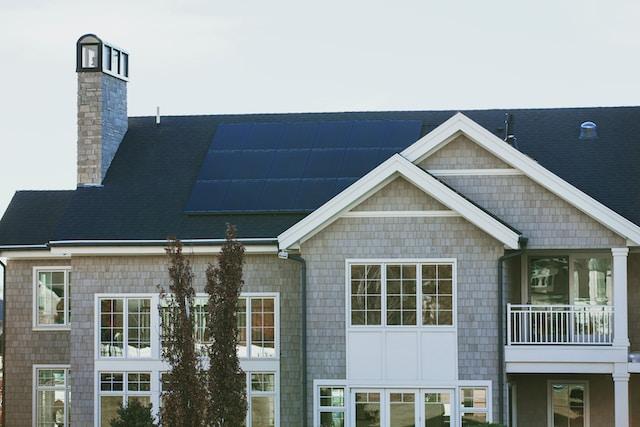
In our digital age, it’s easy to forget that technology is much more than just our smartphones and laptops. The truth is that technology is revolutionizing sustainable living, reshaping how we think, behave, and engage with our planet. It’s playing a monumental role in transforming the world around us, making various facets of our lives more manageable, efficient, and connected.
Harnessing Tech: Breathing Life into Sustainable Solutions
Think of how apps have revolutionized communication or how medical advancements save lives daily. The same driving force is paving the way to combat the imminent threats of climate change and environmental degradation. By blending technological innovation with eco-conscious solutions, we’re on the brink of defining a new age of sustainability. Let’s delve into seven transformative ways technology is ushering in a new era of green living.

1. The Rise of Green Transportation
It’s a pivotal moment in transportation. Gone are the days when gasoline-powered vehicles dominated the roads. Today, once seen as a futuristic luxury, electric cars are becoming mainstream. But the journey doesn’t end with EVs. A slew of app-driven platforms have emerged, making it effortless to book your green ride, be it an e-bike, an e-scooter, or an all-electric cab.
These alleviate the strains of urban congestion and considerably reduce emissions. Innovations like these are just stepping stones in the quest for a cleaner, greener transportation ecosystem, making it easier for individuals to make environmentally-friendly choices daily.
2. Smart Homes for a Smarter Planet
In the contemporary age, our homes have evolved into living, breathing ecosystems of technology. Smart homes, with their connected devices, are at the forefront of this transformation as technology is revolutionizing sustainable living. They offer various gadgets and systems—from intelligent thermostats that adapt to our routines to automated lighting systems that conserve electricity. But it’s not just about convenience. It’s about leveraging technology to minimize our carbon footprint.
As more individuals recognize the value of eco-conscious living, there’s a growing emphasis on ensuring that our living spaces align with sustainability principles. If you’re ever in a position to make a move or consider an upgrade, always make sure it fits your needs. Moreover, when weighing options for relocation, don’t just think about amenities. Consider how to evaluate the quality of life in your new city, especially concerning its environmental initiatives.
3. Circularity at Its Best
The linear economy, with its one-way approach to consumerism, is fading, replaced by a more sustainable model. We’re witnessing an age where the emphasis is on reusing and recycling, and technology is the catalyst behind this change.
Numerous platforms now enable consumers to bring a circular economy into their lives. Instead of discarding old items, technology helps us find ways to repurpose, reuse, or recycle, extending the lifecycle of products. This circular approach reduces waste and promotes responsible consumption, emphasizing the idea that everything has value and nothing should be mindlessly discarded.
4. Virtual Reality (VR) for Environmental Education
The potential of Virtual Reality extends far beyond entertainment. One of its most promising applications lies in education, particularly concerning environmental awareness. Schools and institutions are beginning to harness VR’s immersive capabilities to transport users to ecosystems affected by human activity.

Whether diving into bleached coral reefs or standing amidst vanishing rainforests, VR offers a firsthand look at the consequences of neglecting sustainability. Such experiences are more impactful than traditional lessons, prompting individuals to take proactive steps toward environmental preservation.
5. Sustainable Farming Through Precision Agriculture
Modern farming is not just about tilling the soil and sowing seeds. It’s about integrating technology to produce more with less. Precision agriculture exemplifies this shift. By employing drones, ground-based sensors, and advanced data analytics, farmers can obtain granular insights into their fields.
Technology provides actionable insights, whether it’s monitoring soil health, tracking livestock, or optimizing water usage. This targeted approach means resources are utilized efficiently, ensuring that farms produce optimal yields while minimizing waste and environmental harm.
6. Inspiring Sustainable Lifestyles
Change starts at home. With the advent of numerous eco-focused apps and digital platforms, households worldwide have tools at their fingertips to adopt greener lifestyles. These tools simplify the process of understanding environmental footprints, making it easier to motivate your family to be more eco-friendly.
Want to learn about the recyclability of a product? There’s an app for that. Curious about your water usage or electricity consumption? Digital platforms provide insights and actionable steps. Through these digital channels, every family member can play an active role in reducing their environmental impact.
7. Tech-Driven Renewable Energy
While the concept of renewable energy has been around for decades, technological advancements are amplifying its potential. Advanced grid systems integrate various renewable sources, ensuring a consistent energy supply even when one source falters.
Simultaneously, innovations in battery storage solutions mean excess energy can be stored for future use. Photovoltaic cells, once limited in their efficiency, are seeing breakthroughs, making solar energy even more viable. These tech-driven innovations ensure that renewable energy sources are not just alternatives but will become the primary means of energy in the near future.

Beyond the Horizon: The Green Future Ahead
Embracing the ways technology is revolutionizing sustainable living paints a brighter horizon for our planet. Each innovation, whether in smart homes or green transportation, is a testament to humanity’s ingenuity and commitment to preserving our world. But technology alone can’t shoulder the responsibility. As stewards of the Earth, it falls upon each one of us to adapt and integrate these advancements into our daily lives. The future brims with potential, with every click, swipe or tap drawing us closer to a more sustainable tomorrow. Let’s champion this tech-driven era, ensuring our habits reflect a greener, more conscious existence. The choice is ours; let’s make it count for future generations.


